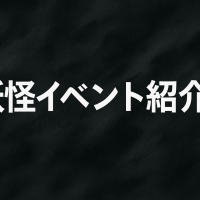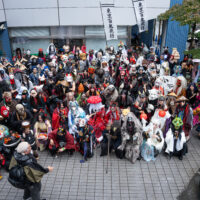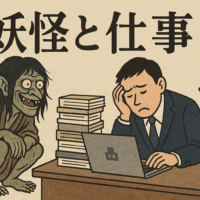
The light and shadow of the event

Events are not all fun and games. Through running my own local yokai events, I have repeatedly come to realize that even though a day is filled with smiles from the participants, behind the scenes there are many conflicts and responsibilities swirling around.
For example, when an event is held, while some people find it enjoyable, there are inevitably some who find it unpleasant. No matter how much preparation is done, no matter how many simulations are performed, I have honestly never seen a 100% perfect operation.
Internal reflection and responsibility
The management side usually feels deeply remorseful internally for causing such unpleasant experiences. The parties involved gather information and seriously investigate "what went wrong." However, if the situation escalates, it can ultimately lead to a mutual quest to determine who is to blame.
In these situations, it is the "organizers" or "leaders" who should take responsibility, but the staff and other people involved at the very bottom of the organization tend to vent their frustrations on the people directly above them. If things go wrong, an exchange of complaints that strays from the essence of the problem can break out on social media or in forums.
Unreasonable pressure falls on the workplace
What's even more troublesome is when the person who started the problem or the leader who should take responsibility watches the situation from afar, while the person in charge on the ground is left to shoulder the full weight of the situation that they were unable to do anything about and is busy apologizing and dealing with the situation.
It's said that 90% of an event is preparation, but when you actually start planning, problems pop up one after another: "This wasn't done," "That was dangerous," "The venue was too hot or cold," etc. I'm ashamed to say that I've experienced many situations in the preparation stage where something that "could have been done with a little thought" wasn't done.
Every little bit counts - the pressure created by criticism
At times like that, when a participant says, "I wish I had done it this way," my honest response is, "Yes, you're right. I'm sorry. And thank you for letting me know." However, as these complaints pile up one by one, it becomes a huge pressure that weighs on me. It's not uncommon for me to respond in a strong tone, asking, "How are you going to take responsibility for this?"
In my experience, I have never seen anyone, no matter how experienced they are at running events, manage an event without any mistakes. In fact, even behind the scenes of an event that appears to be a perfect success, there are always some kind of troubles that occur and the event is simply recovered from.
When you can no longer say "I'm sorry"
When criticism gets louder, it becomes harder to say "I'm sorry." You want to make excuses, saying "I actually wanted to do it this way" or "There were circumstances that prevented me from doing it." But saying it aloud sounds like an excuse, which is even more painful. Some people push it deep inside and somehow get through it. Others are able to accept it and say, "It's not my fault." There are all kinds of people, but I still want to express my feelings clearly.
Who is the event for?
Many people who organize events don't do it because they want to make someone feel bad. Rather, they start out wanting someone to be happy and have fun.
When participants notice a small flaw on the day, it spreads like a ripple of empathy, creating a huge wave that reaches the organizers - this is only natural, and we event planners are on-site, prepared to accept this.
If there is anyone who is not prepared for this, then they cannot be called a true event planner.
As a bridge connecting our thoughts
Although an event is a one-time "festival," the emotions and words exchanged there remain in people's memories for a long time. That is why I hope that both organizers and participants can come together, even if just a little, by facing each other's positions, efforts, and failures.
These small steps will enrich the event itself, as well as the local community and culture, even if only a little at a time. It is with this belief that I continue to plan and prepare events today.








No comments yet.